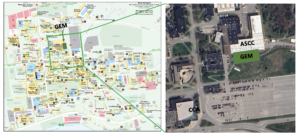The gene editing program CRISPR has become a hot topic in recent years, but I am torn between whether or not I support the modification of the unborn; in one sense, the practice seems beneficial, but in another, the practice makes me think of placing an online order. This scientific advantage may seem like a way to enhance human health and our society. However, others (like myself) see this technology as scientific manipulation, which is essentially what genetic modification is. One issue with this therapy is the price. It is incredibly expensive to have these genetic modifications performed. Thus, it creates a class divide between those who can afford to ensure their children are born healthy and those who cannot.
Using this technology to help fight and prevent diseases is a great tool, but when this technology becomes a way to pre-order a child, modification becomes a morally gray area that I find deeply concerning. I don’t believe that people should be able to pick certain genetics that do and don’t get passed on, as it takes away the diversity of our society and increases its animosity.
Our population is nearly split down the middle when it comes to this topic. In a survey completed by Pew Research Center in 2021, 49% of adults surveyed would not want gene editing done on their children, and 48% would want the gene editing done. The same adults, however, when asked whether or not they would feel pressured by society to utilize this therapy, 25% stated they would not feel pressured, and 73% would feel pressured to have gene editing therapy done to their children.
These gene editing techniques allow parents to pick and choose certain attributes that they desire for their children. Some people argue that this technology has the potential to enhance overall human health by reducing a baby’s risk of getting serious diseases or conditions, while others consider it a measure to decrease the diversity found within society. There are numerous potential applications that gene editing techniques can serve for humans, like preventing or lowering the probability of developing diseases. There are also potential applications such as choosing what hair color your child would have, their anticipated eye color, whether they have freckles or no freckles, their gender, etc. All these are things that parents shouldn’t necessarily have the right to pick and choose, as this practice is essentially “build-a-kid.”
This gene-editing technique utilizes CRISPR technology and is currently being developed for therapeutic needs. Data from clinical trials suggest that this gene therapy has and can be helpful in the treatment of hereditary disorders and diseases such as sickle cell anemia. The Institute for Clinical and Economic Review (ICER) suggests the average cost of a gene therapy is between $1 million and $2 million per dose. The therapies have an incredibly high cost to produce, so it makes sense that the dosage itself is expensive. This price, however, makes it nearly unavailable for those who can’t shell out millions of dollars for gene therapies to help prevent or treat diseases and especially cannot shell out millions to pick and choose certain characteristics that they desire their future children to possess.
As previously stated, I am incredibly torn in my beliefs about this entire process. On the one hand, I think that this technological advancement could be very beneficial with regard to the treatment of various syndromes and diseases. On the other hand, this advancement could also be utilized in a way that isn’t exactly moral. It’s essentially ordering a human, and I just can’t bring myself to agree with the practice of cosmetically enhancing embryos. I just really cannot understand why people should be able to pick and choose certain characteristics they want their children to have just because they have enough money to pay for it. I think that this would negatively affect society, as it would decrease the overall diversity of it.









